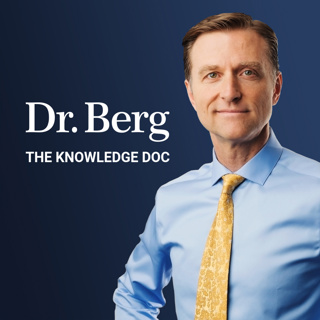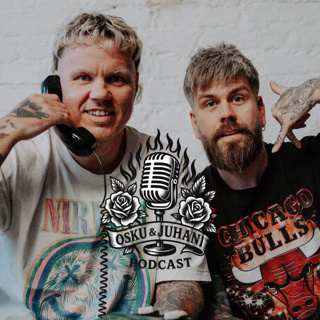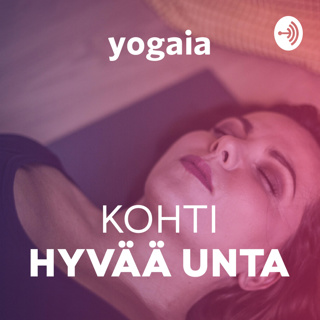
6 Foods that Lower Cortisol
I’ve done a lot of videos on cortisol, especially as it relates to the adrenal body type or adrenal glands. But I haven’t done a video on the foods that lower cortisol. That’s what we’re going to talk about today. Of course, there are a lot of benefits to reducing cortisol, but we’re not going to get into that today. Instead, I want to cover the foods that can help you lower cortisol naturally. Cortisol adapts the body to a stress state. It's important to note that the body doesn’t know the difference between mental stress and physical stress. A high level of sugar in your blood affects cortisol and adrenaline. In other words, consuming sugar, refined carbs, and starches keeps you in stress mode. On the flip side, the Healthy Keto® diet and intermittent fasting help lower cortisol and promote a sense of calm. The best foods to lower cortisol and stress: 1. Egg yolks 2. Organ meats 3. Nutritional yeast or sunflower seeds 4. Dark leafy green vegetables 5. Salmon and other fatty fish 6. Probiotics and fermented foods (sauerkraut, kefir, pickles, kimchi) DATA: https://www.ncbi.nlm.nih.gov/pmc/arti... https://www.ncbi.nlm.nih.gov/pmc/arti... https://link.springer.com/article/10....
22 Marras 20239min

The Fastest Way to Pull Yourself Out of Any Stressful Situation
Today, I’m going to share one of the best ways to reduce stress. It can also help those who struggle to fall asleep or stay asleep at night. This simple stress-release technique works fast, is free, and has many health benefits. It will help balance the parasympathetic nervous system, which is all about “rest and digest.” This easy breathing technique is based on a book called Heart Coherence 365. What you need to remember is 365, which stands for: • 3 times a day • 6 breaths per minute • 5 minutes Three times a day, you’re going to take six breaths per minute for five minutes. It’s important to make sure you take deep, even breaths through your nose using your stomach. You should feel your diaphragm going out and in. This breathing technique for stress can also help improve HRV (heart rate variability). HRV has a lot to do with your health and fitness reserves. An HRV (heart rate variability) device can help you better understand and improve your health and nervous system balance. DATA: https://www.amazon.com/Heart-coherenc...
21 Marras 20234min

How to INSTANTLY Relieve Painful Periods (Menstrual Cramps)
Let’s talk about how to stop period pain or menstrual cramps. With period cramps, you experience cramping in the lower part of the body. It’s the uterus itself that’s cramping or contracting, which can cause a painful period. A great way to get instant relief from menstrual cramps is to try stretching. To do this stretch, you need to lay on your stomach and push your hands into the ground straightening your arms and stretching your back. However, to get to the root cause of the issue and get rid of menstrual cramps, we need to lower a chemical in the body called prostaglandins. People will typically use ibuprofen to lower prostaglandins. But ibuprofen has side effects. Thankfully, there are natural alternatives you can try to help lower prostaglandins. The best natural remedies for menstrual cramps: 1. Cinnamon 2. Vitamin D3, calcium, and magnesium 3. Omega-3 fatty acids (cod liver oil) DATA: https://www.ncbi.nlm.nih.gov/pmc/arti... https://www.ncbi.nlm.nih.gov/pmc/arti... https://www.ncbi.nlm.nih.gov/pmc/arti...
20 Marras 20234min

11 Vitamin B6 Deficiency Symptoms You've NEVER Heard Before
Today, I want to cover the symptoms of a vitamin B6 deficiency you may have never heard of before. “They” say it’s rare to become deficient in vitamin B6. However, it’s possible to have a subclinical B6 deficiency that still affects your well-being, even if it’s not a full-blown vitamin B6 deficiency. Vitamin B6 is important to support a healthy body. Typically, there are no side effects of taking vitamin B6 if you take less than 200 mg daily. If you take too much vitamin B6, you could experience toxicity effects. However, you would have to consume over 1000 mg of vitamin B6 per day to cause any issues. Foods rich in vitamin B6 are: • Beef • Pork • Fish • Chicken It’s pretty well-known that if you have low vitamin B6, you may experience symptoms, including: • Rashes around the nose • Cracks or rashes around the mouth • Pink eye • Anemia • Neurological problems • Numbness in the hands and feet • Depression Surprising symptoms of a vitamin B6 deficiency: 1. Inflammation (especially gut inflammation) 2. Inability to control polyunsaturated fatty acids 3. Deficiencies in neurotransmitters 4. Inability to convert ALA to DHA 5. Poor selenium function 6. Inability to convert tryptophan to niacin 7. Alopecia 8. Seizures 9. High homocysteine levels 10. Increased risk of autism 11. Increased risk of gut pathogens Causes of vitamin B6 deficiency: • Processed foods • Diuretics • Blood pressure medications • Antibiotics • Birth control pills • Alcohol • Pregnancy or lactation • Smoking • Herbicides • Ginkgo biloba DATA: https://microbiomejournal.biomedcentr... https://onlinelibrary.wiley.com/doi/1...
19 Marras 20237min

The 12 Triggers of Inflammation: The Root Causes
Today, I’m going to cover the root causes of inflammation. Being in practice for thirty years gave me the opportunity to see a wide range of different cases and causes of inflammation—things you won’t find on Google. Top causes of inflammation: 1. A gallbladder issue or bile sludge 2. Vitamin D deficiency 3. Stress or loss 4. Ingredients in restaurant foods 5. Sugar, grains, gluten, and seed oils 6. Unhealthy keto snacks 7. Visceral fat 8. High iron levels 9. Alcohol 10. Food allergies and food intolerances 11. Frequent eating 12. Oxalates and lectins in vegetables The best natural ways to get rid of inflammation: • Get on the Healthy Keto® diet • Start intermittent fasting • Take vitamin D3 • Consume glutamine as a supplement or from red meat or cabbage (if you have gut inflammation) DATA: https://www.ncbi.nlm.nih.gov/pmc/arti...
18 Marras 202310min

Why Women Can't Lose Belly Fat After Menopause
Let’s talk about why it’s so difficult for women to lose belly fat after menopause—and what to do about this issue. When a woman goes through menopause, her ovaries no longer produce or release eggs. This big change leads to a cascade of other changes. The ovaries also make hormones, which means a woman in menopause will have lower hormone levels. However, when this happens, the adrenal glands are supposed to act as the backup system for the ovaries. The adrenal glands make all of the hormones that the ovaries make. If the adrenal glands are strong and stable when a woman is going into menopause, they may experience fewer symptoms. It’s not normal to experience symptoms of menopause unless there’s a problem with the adrenal glands. Another part of the body we need to focus on is the parasympathetic nervous system. The parasympathetic nervous system is the recovery system of the body. It influences your sleep and ability to recover. Fat burning occurs in the recovery phase. Exercising your parasympathetic nervous system will help reduce cortisol, support sleep, and get rid of belly fat. In order to strengthen your parasympathetic nervous system, it’s crucial to increase the time you rest in between your reps and sets of exercise, as well as the days of exercise. You have to make sure you don’t overtrain and give your body a chance to completely recover and reset. How to lose belly fat after menopause: 1. Do high-intensity exercises with longer rest periods 2. Don’t overtrain 3. Don’t train over soreness 4. Focus on getting more sleep 5. Take advantage of chiropractic care, massage therapy, or physical therapy 6. Consume omega-3 fatty acids 7. Take DHEA 8. Go on a low-carb diet with intermittent fasting 9. Get plenty of magnesium, choline, vitamin B1, and vitamin D 10. Try lemon balm, passionflower, or ashwagandha
17 Marras 20239min

A Healthier Vegan Version of Keto (Enhanced Nutrients)
I’m not against the vegan diet. But there are some key tips to follow if you’re trying to do keto as a vegan. A vegan diet can still be an unhealthy diet. It’s crucial to ensure you’re getting the nutrients you need no matter what diet you’re on. Some of the top things to avoid if you’re vegan are: • Textured vegetable protein • Soy protein isolates • Fake meat • High-fructose corn syrup • Gluten Certain nutrients are easy to get on a vegan diet. But, it’s difficult to get vitamin B12, selenium, iron, zinc, vitamin A, and vitamin D if you eat a vegan diet. It’s also difficult to get omega-3 fatty acids and amino acids if you’re vegan. If you’re going to do a vegan version of the ketogenic diet, you need to go beyond just lowering your carbs and consuming high amounts of fat and a moderate amount of protein. You also really need to focus on getting the nutrients you need. If you’re going to consume grains, you want to consume grains that are gluten-free, including: • Oats • Quinoa • Millet • Teff • Buckwheat You can also consume products made with almond flour. But keep in mind that when you consume grains, nuts, or legumes, you need to germinate them first to get rid of anti-nutrients. Top vegan, keto-friendly foods to include in your diet: • Nutritional yeast (non-fortified) • Sauerkraut (raw version) • Raw wheatgrass juice powder • Spirulina • Seaweed or sea kelp • Extra virgin olive oil, coconut oil, or red palm oil • Carrots • Squash • Bell peppers • Leafy greens • Nuts • Hummus • Avocados You may also want to take taurine, an important amino acid, as a supplement to help avoid issues ranging from anxiety to gallstones.
16 Marras 202312min

12 Things That STOP a Good Night's Sleep
Sleep has a significant impact on your health. I want to cover the top things that can prevent you from getting a good night’s sleep. There’s a direct correlation between your sleep and overall heart function and longevity. A lack of sleep can affect your blood sugar levels and increase cravings and hunger. Poor sleep can also raise your cortisol and affect your mood. The top things that prevent you from sleeping: 1. High cortisol 2. Low vitamin D 3. Low calcium 4. Low magnesium 5. Low potassium 6. A bad sleeping environment 7. Taking melatonin 8. Blue light and EMF 9. Low vitamin B12 10. Low vitamin B1 11. Low zinc 12. Stimulants Cutting out sugar and going on a low-carb diet is crucial to help you start sleeping better. Also, avoid eating too late or overeating to help support better sleep. Another great tip is to focus on your breathing to help you fall asleep fast. DATA: https://www.ncbi.nlm.nih.gov/pmc/arti... https://www.ncbi.nlm.nih.gov/pmc/arti... https://www.ncbi.nlm.nih.gov/books/NB...
15 Marras 202312min





















